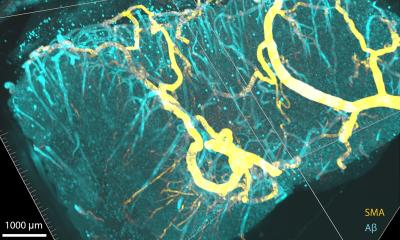First synthesis of molecules that cause rapid cell death in cancer
Dartmouth researchers and their colleagues have carried out the first total syntheses of certain compounds involved in excessive cell death in leukemia.

The findings appear in the journal Angewandte Chemie International Edition. A PDF is available on request.
"We anticipate that these compounds will serve as useful tools for dissecting an important but as yet undefined step in the regulation of apoptosis," says senior author Jimmy Wu, an associate professor of chemistry at Dartmouth. "Studies to clarify the biological mechanism by which they operate are ongoing."
The researchers completed the total syntheses of several members of the family of dimeric nuphar alkaloids, which are compounds previously isolated from the yellow pond lily. These are structurally complex molecules that are capable of including apoptosis, or programmed cell death, in certain human leukemia cell lines faster than any other small molecule. The researchers also were able to synthesize some related structures that they predict might exist in nature but have not yet been found.
There have been only two reports that attempt to explain the biological mechanism of action of these molecules. But these are incomplete and more research is required to fully reveal how these compounds work. The Dartmouth-led team's synthetic efforts now provide a means to a steady supply of the active compounds for further study. Preliminary biological tests conducted by co-author Alan Eastman, a professor of pharmacology and toxicology at Dartmouth's Geisel School of Medicine, indicate that all the compounds, both naturally occurring and ones predicted to be exist in nature, are capable of inducing extremely rapid apoptosis in leukemia cells. The researchers are in the process of studying their biological mechanism of action.
"Insufficient apoptosis is strongly linked to cancer and autoimmune disorders," Wu says. "There are also numerous diseases associated with excessive cell death, such as AIDS, Alzheimer's, Huntington's, Parkingson's and ALS. A better understanding of the biological basis of how the dimeric nuphar alkaloids can so rapidly induce cell death may lead to novel points of intervention for the design of prospective therapeutics and other diseases attributed to abnormal apoptosis."
Source: Dartmouth College
23.07.2015





